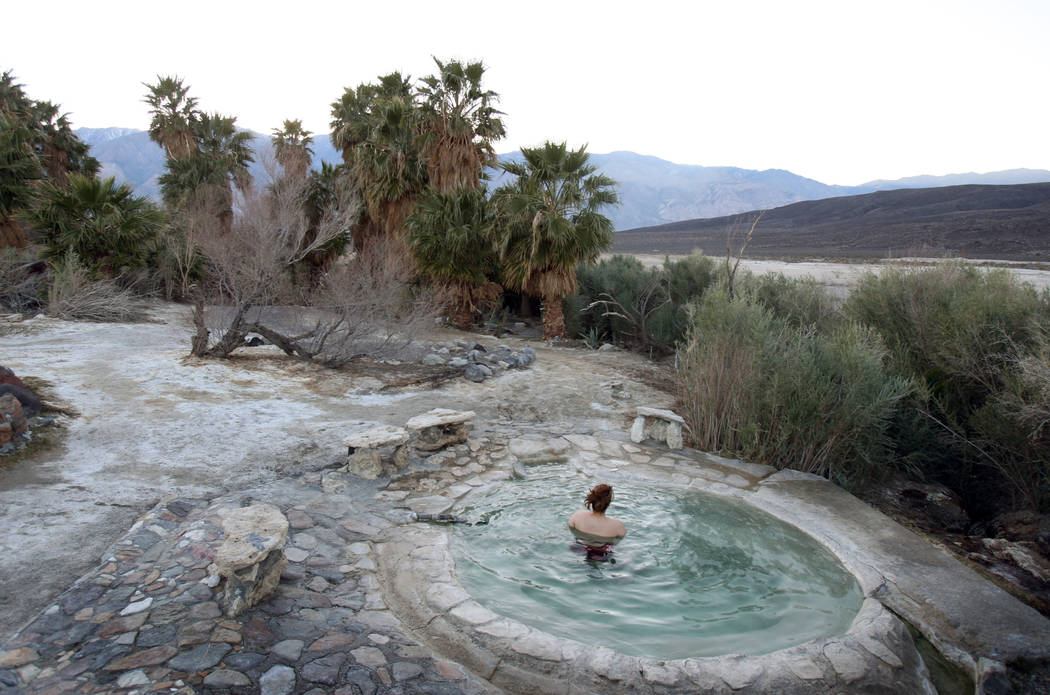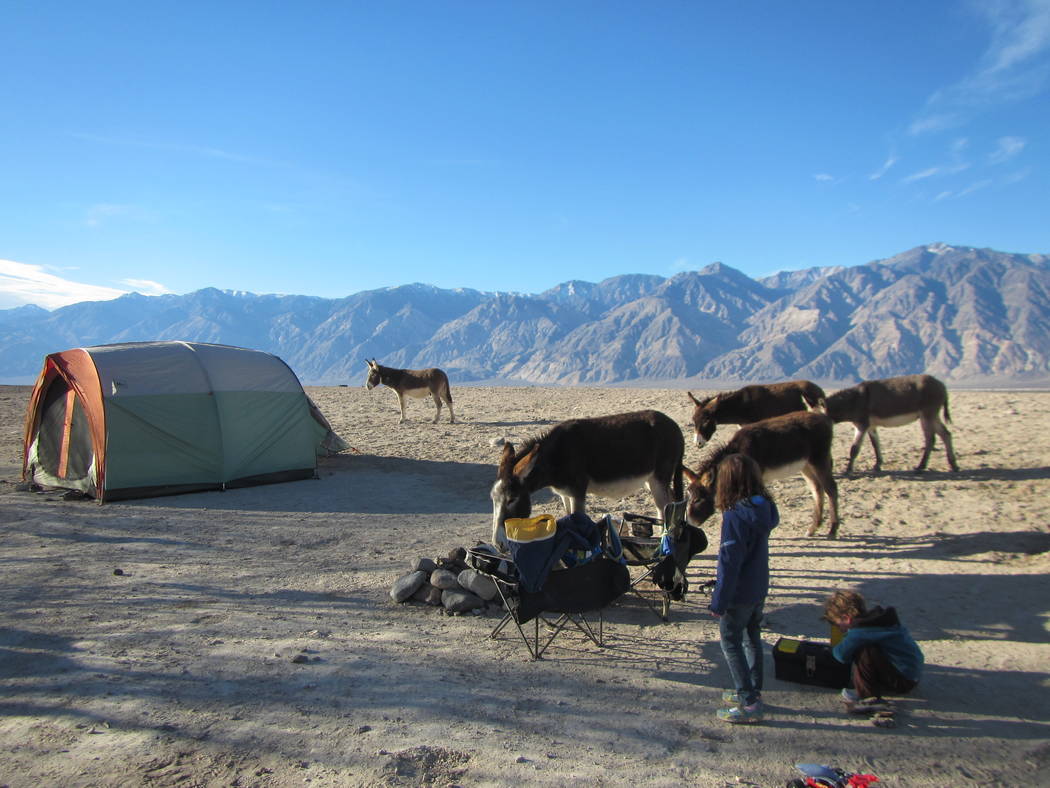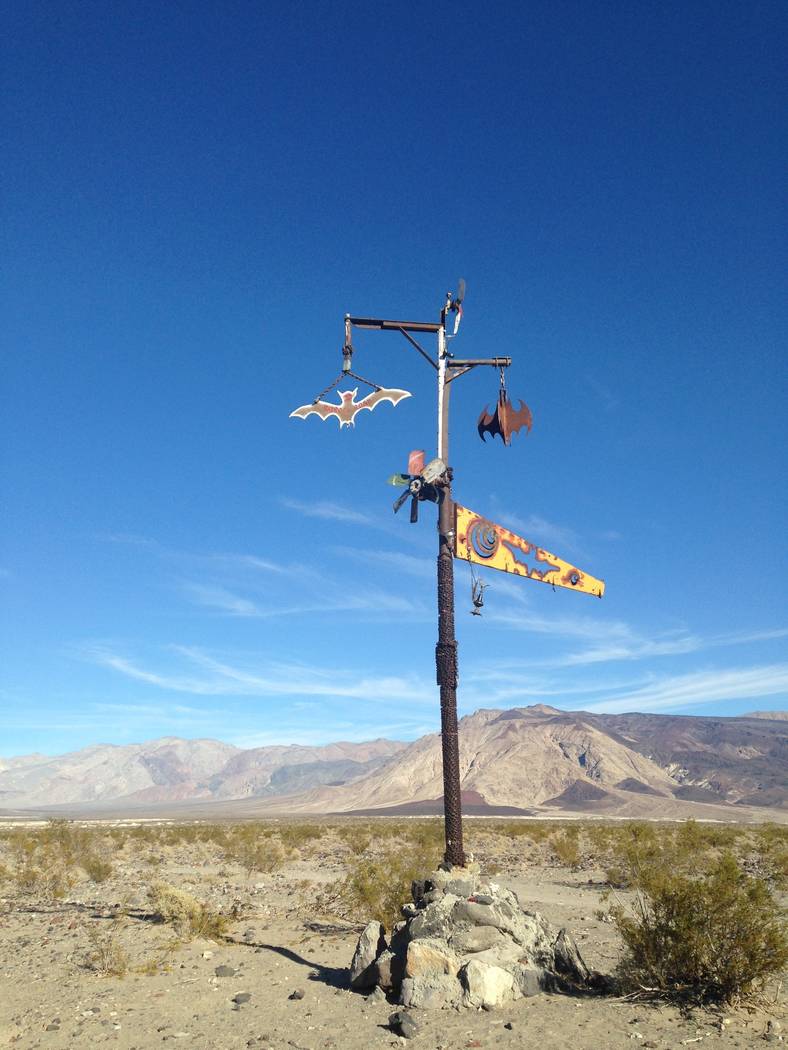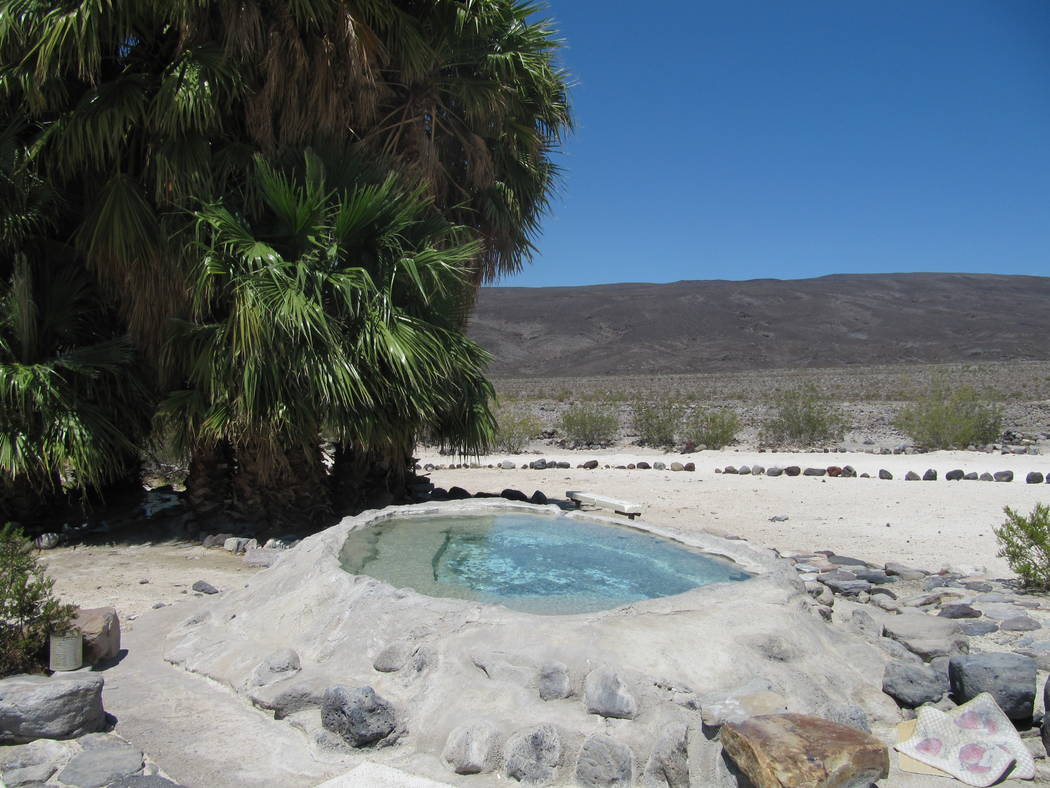Nudity OK at Death Valley hot springs, but burros, palms must go
Death Valley National Park has released its final plan for managing its remote hot springs and the naked regulars who like to soak in them.
Nudity will still be allowed at Saline Valley Warm Springs, but non-native palm trees and burros will be phased out under the final management plan released Friday by the National Park Service.
The plan preserves the existing soaking pools and art installations, designates approved camping areas and generally leaves the site’s day-to-day management and maintenance in the hands of user groups.
To protect natural and cultural resources at the California site 265 miles northwest of Las Vegas, the plan calls for the installation of “artistic” burro-proof fencing around source springs and the removal of an impromptu auto repair service for vehicles damaged on the rough dirt roads leading to the site.
The park service also plans to remove all palm trees and other non-native plants from around Upper Spring, while the existing palm trees around Lower Spring and Palm Spring will be left to live out their lives and be replaced by native plants after they die.
“What we heard loud and clear from many of the recreational users was a desire to ‘leave it like it is,’ ” Death Valley National Park Superintendent Mike Reynolds said in a written statement. “We feel this management plan will maintain a feeling of unconstrained recreation while protecting natural and cultural resources.”
Saline Valley has served as an off-the-grid, clothing-optional, counterculture gathering place since the 1950s. Dedicated visitors have installed concrete soaking pools, support facilities, outdoor art and even a lawn at the desert oasis 35 miles from the nearest paved road.
The area was under the supervision of the Bureau of Land Management until 1994, when it was folded into the national park as part of the California Desert Protection Act.
After largely ignoring the place for years, the park service started work on a first-ever management plan for Saline Valley in 2012.
The process lasted roughly seven years and drew almost 1,700 comments from the public, culminating in the final plan unveiled Friday.
The park service is now working on a separate regulatory process to allow continued operation of a dirt runway known as the Chicken Strip near the springs. The airstrip was never designated as an approved landing area and, technically speaking, has been operating illegally for years, though park officials have long sanctioned its use.
The new management plan for Saline Valley is slated to take effect in about 30 days.
The plan does not address public nudity at the site, though park officials note that federal law only prohibits lewdness, not nudity.
As for the burros, they are currently being rounded up and removed from Saline Valley — and elsewhere in the 3.4 million acre park — by a Texas-based nonprofit contractor.
Contact Henry Brean at hbrean@reviewjournal.com or 702-383-0350. Follow @RefriedBrean on Twitter.

























